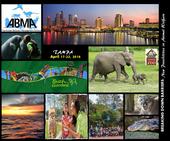Special Presentations Abstracts
|
Presentation from Twycross Zoo International Animal Training Conference There’s Nothing Wrong with a Pig in Sh*t! Shifting Our Priorities in Favor of Psychological Well-Being! Animal welfare is a hot topic worldwide, but we still do not have a practical definition that addresses the most common concerns. That shouldn’t stop animal care givers from striving to enhance an animal’s well-being. In the past 30 years, we have witnessed changes in the quality of care we provide our animals from improved nutrition and veterinary care to new substrates and disinfectants. These improvements in animal management and husbandry have enhanced the lives and health of our animals immensely which has led to increased longevity in nearly all species. But we still need to ask ourselves are we providing good psychological welfare for our animals? Even more recently, operant conditioning and environmental enrichment have become easily applicable tools for improving animal welfare, but time is a significant factor in administration of these tools. Too often, we favor basic husbandry over enrichment and training, but an animal’s psychological welfare should be considered a top priority. Oakland Zoo in California is addressing the issue of prioritizing psychological welfare by creating clear expectations for keepers and managers so that time for training and enrichment is not just possible, but mandatory! The resulting psychological well-being matrix, individually developed for each species, allows keepers to constructively prioritize their time and find a balance between basic husbandry and psychological well-being. Not only has this matrix enhanced the quality of life for our animals, but it creates a practical infrastructure for keepers and managers to offer the quality of care their animals require on a daily basis. |
|
Advanced Reinforcement Concepts Combining Science with Common Sense for Optimal Animal Behavior
“The way positive reinforcement is carried out is more important than the amount.” These wise words from B.F. Skinner are as true in modern zoological training as they were when first uttered. As animal training consultants working with facilities worldwide, we often see the same challenges over and over again regardless of the focus species. Frequently, these difficulties are the result of predictability and lack of correct application of some of the most effective tools at the trainers’ disposal. This workshop will discuss advanced reinforcement concepts that can benefit all trainers whether they work with dolphins, dogs, alligators or macaws. Topics will include a variety of strategies for avoiding predictability in animal training programs such as choosing the best reinforcement schedule based on the circumstance, ensuring variety in the types of rewards offered, advanced bridging strategies and exploring the latest research on the neurotransmitter dopamine and its relation to “maybe.” We will also explore many of the most frequently misunderstood ideas or strategies in animal training such as the purpose behind and application of the least reinforcing scenario (L.R.S.), use of the Premack Principle, and the role of deprivation and satiation as they relate to reinforcement effectiveness. Although this is an advanced workshop, all concepts are explained in depth with real-world examples. The goal is to arm trainers with information and tools they can implement immediately into their daily training routines for the continued growth of the animal training field. |
|
Killing Keiko: A Cautionary Tale of One Whale
Millions of Free Willy movie enthusiasts have been led to believe that Keiko’s return to the wild was a triumph. After the syndication of the film Blackfish, Keiko’s story once again became a rallying cry for anti-zoo proponents calling for the release of other killer whales in zoological care. But according to author Mark Simmons, director of the Keiko Animal Behavior Team on the Keiko Release Project, the whale’s riveting story is one of unnecessary tragedy. This lecture, Killing Keiko: A Cautionary Tale of One Whale, unveils the shocking evolution and collapse of the whale’s rehabilitation, covering his final trek across the North Atlantic to his heart-wrenching death in Norway. Simmons discusses the most influential factors, covering theories behind the rehabilitation plan, behavioral excesses and deficits, the organizations role in the outcome and the concept of captivity and the modern zoo. In life, Keiko was undoubtedly the most famous whale in history. In death, he became the most famous case of animal abuse the world cannot yet fathom. Simmons illuminates the true story of Keiko’s journey and shows why it is more important now than ever before.
|

